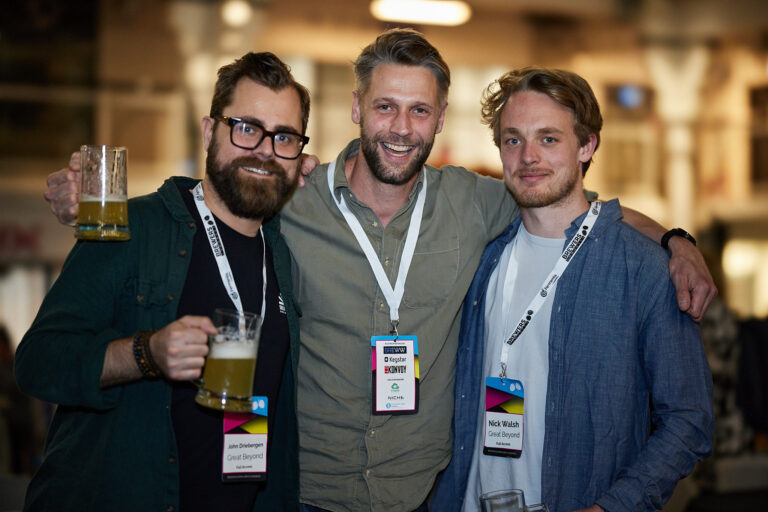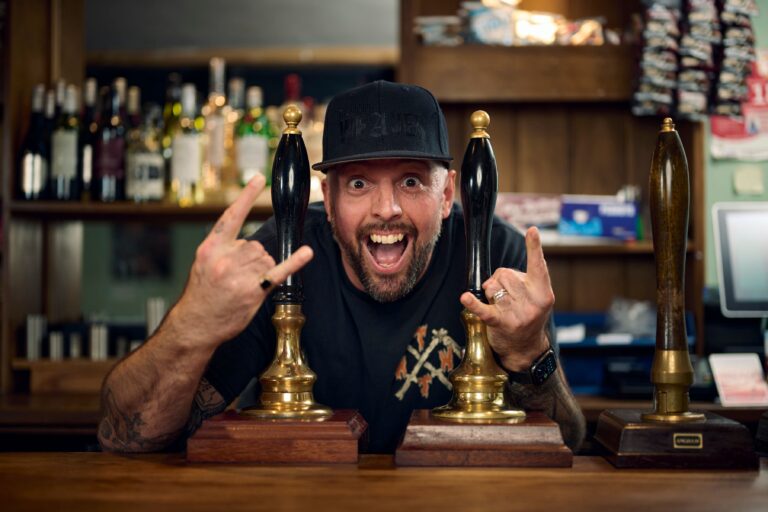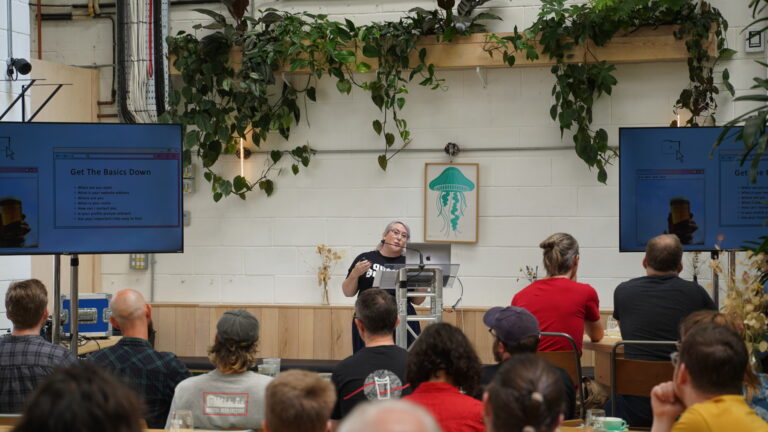Based in England’s capital but drawing on global influence and expertise, London Beer Factory has grown both in stature and ability since starting out six years ago. An in 2020 its co-founders Ed and Sim Cotton are confident and excited about the road ahead.
We’ve all been there. You know, when you have to lather yourself in fake tan to convince your colleagues that you’ve been celebrating your brother’s wedding in Singapore when, instead, you’ve actually spent three weeks up in Sunderland.
No?
Well, thankfully for beer fans, that’s exactly the decision that Sim Cotton, co-founder of London Beer Factory, made back in 2013 in order to follow his dreams of getting into the world of beer. He just needed to be creative about how he did it.
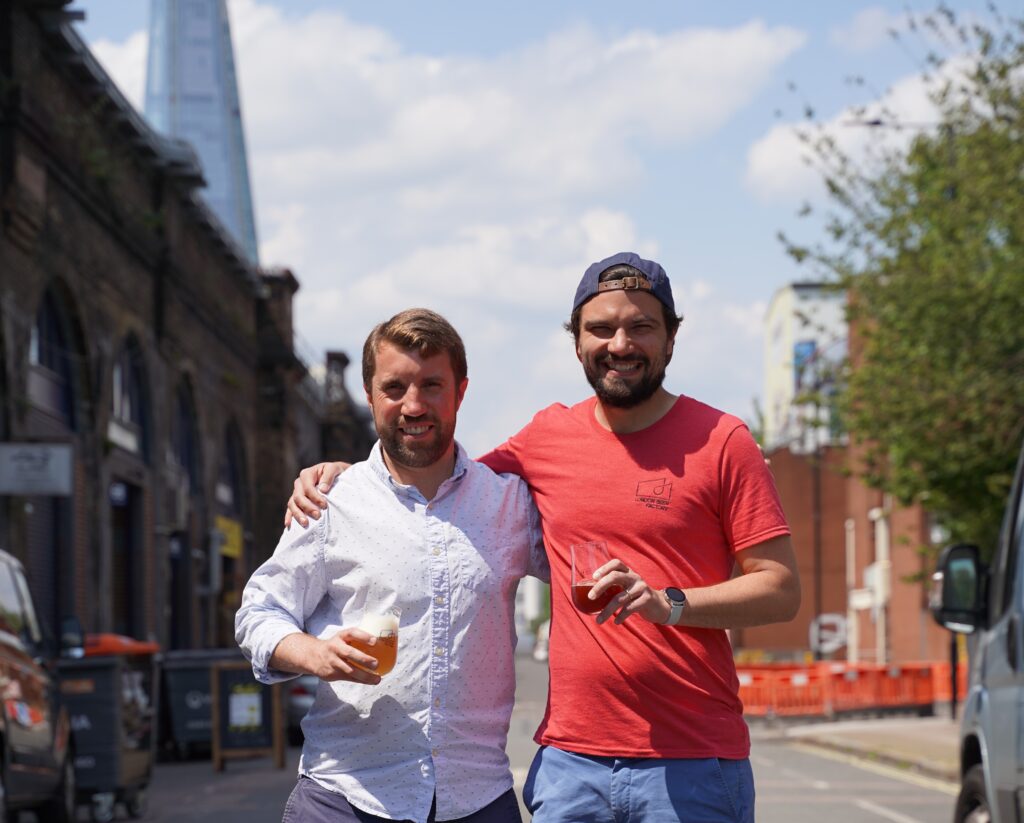
“The first thing my boss said to me when I came back into work on Monday was ‘Hey Sim, nice tan’. The funny thing is, it was his idea in the first place! He knew going to my brother’s wedding was the only way for me to get the annual leave approved by the powers that be,” laughs Cotton.
The less said about the tan mysteriously disappearing in the following days, the better…
Rather than basking in the balmy glow of the Far East during those three weeks, Cotton would be soaking up something different; knowledge.
Enrolled in a three-week course at Brewlab on the banks of the River Wear, he would learn a raft of valuable information designed to give aspiring brewery owners the leg-up they need to go on and start their own business.
Prior to making his passion for beer professional, Sim was an avid home- brewer, producing beers on extract kits before treading the well-worn path to all-grain brewing. While he had a degree in physics and astronomy, brother Ed was armed with a course in Oenology – the study of wine and winemaking – from the University of Brighton.
“I’ve come into beer from a different background,” says Ed. “But I feel that my circumstances complement Sim’s beer experience well. And let’s be honest, we both love beer.”
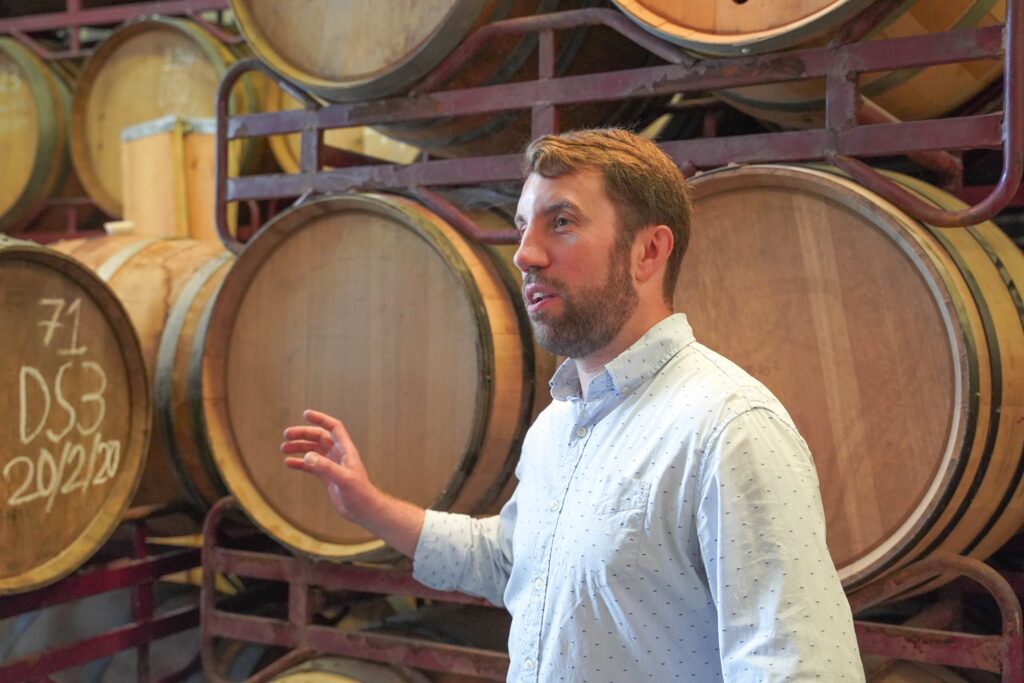
From 2011, Ed would find himself working in the London wholesale market supplying beer, wine and spirits. “London-based breweries were on the scarcer side, but you could see and feel this gradual buzz in the sector. Slowly and surely, more of these businesses started trading and the appetite for craft beer was very much on the up.”
And by the Summer of 2014, Ed and Sim would become part of that fabric. Working alongside existing jobs, before leaving them to concentrate on their new profession full-time, the duo utilised funding through a Seed Enterprise Investment Scheme (SEIS) to raise money for the brewery.
“We wanted to open this business in an area that was nice to work in, but also in a community the brewery could become part of,” explains Ed.
They settled on Gipsy Hill in South London, opening in the same business park that Gipsy Hill Brewing Company would go on to call its home three months after.
A 20bbl brewhouse was installed, kit that still produces the brewery’s beers today. However, fermentation capacity has increased massively in the last six years, with the brewery housing 14 FVs ranging in size from 40HL to 60HL.
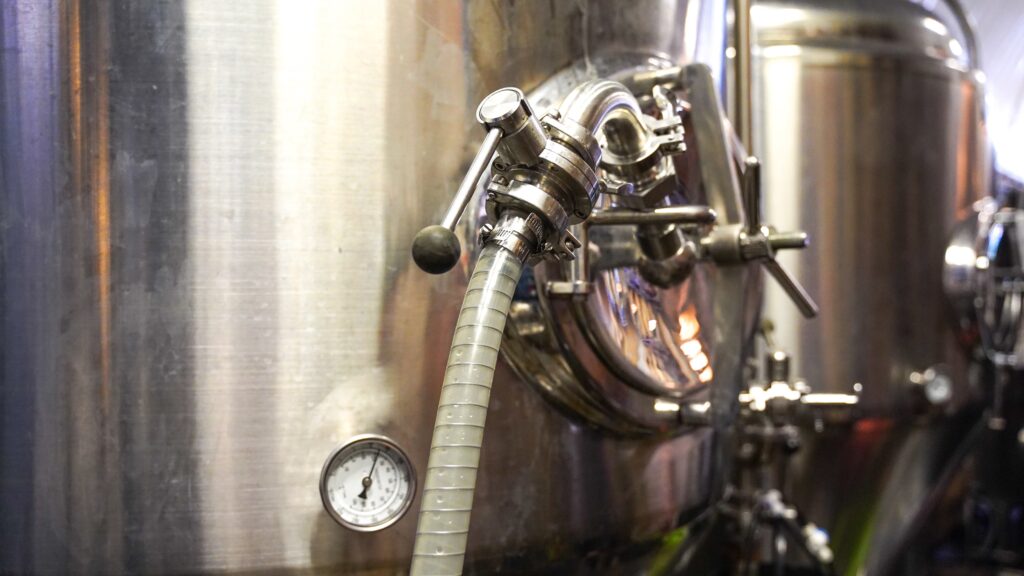
The outfit’s production capacity has grown in that period, much like the number of fellow London breweries playing their trade.
“I recall pouring our beers at a festival held at The Strongroom bar in Shoreditch shortly after we opened,” says Ed. “The beer scene was markedly different to how it is now. But it remains a fantastic and exciting sector to be part of, too.”
Much of the brewery’s early focus centred on core beers. However, as capacity has grown and the team caters for growing demand, its own release schedule swelled to diverse 40 new beers in 2019.
London Beer Factory output more than 7,000HL last year, with a near 50/50 split in the volumes that go to retail and draught consumed by the on-trade, which includes their own Bermondsey taproom; The Barrel Project.
A significant portion of the beer London Beer Factory supplies to off-trade is sold by Tesco. The retail chain offers four of the brewery’s beers in the form of Hazey Daze, Sour Solstice, Big Milk Stout and Fuzzy Recall.
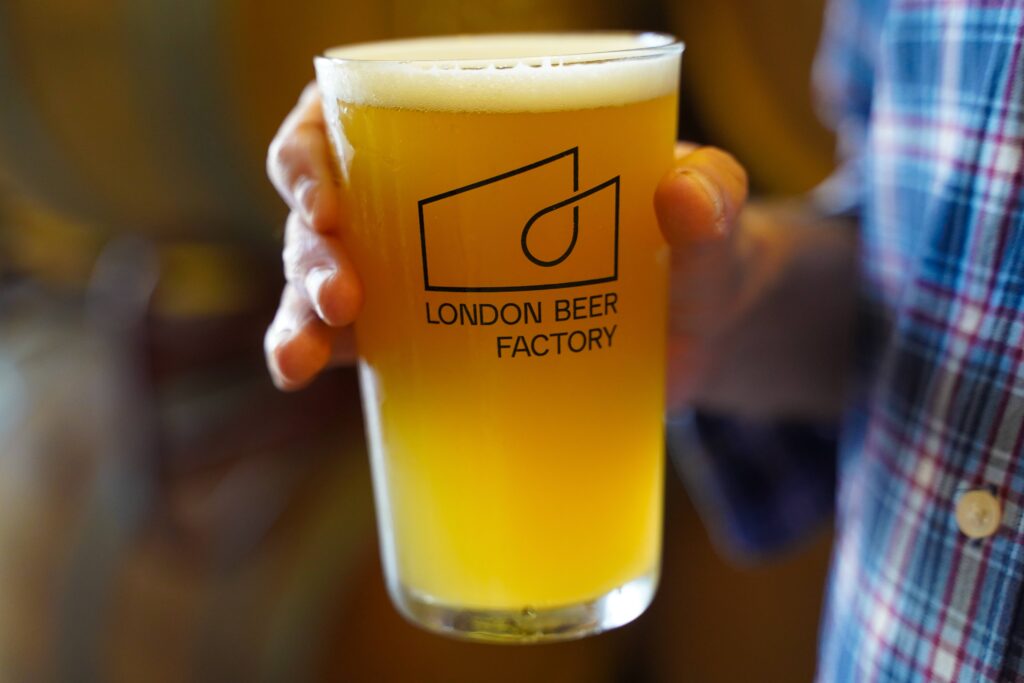
Hazey Daze is a 4.6% Session IPA available individually in 330ml cans or in four-pack. It features a malt bill of Low colour Maris Otter, Pilsner, Oats & Wheat, Mosaic and Citra on the hop front and is fermented by British Ale V yeast.
The beer has been a major hit for the brewery since its launch in 2018, per- forming incredibly well in small-pack and also on draught throughout the on-trade. It accounts for 50% of the company’s total output.
“It’s rewarding to make a beer that so many people enjoy,” explains Sim. “I’m really, really pleased with it and I think it stands among many of its peers.”
He adds: “Experimenting with so many different styles is great fun, and it’s important to try your hand at variety. But it’s also important to have that beer that can perform on a volume basis, too.”
“Securing the listing with Tesco was a big deal for us,” says Ed. “They’ve been incredibly supportive in the three years we’ve worked with them, but you’ve got to be at your best to meet their standards.”
He adds: “We already had SALSA accreditation, which gives the buyer confidence regarding the beer with produce, but Tesco take that to the next level. It was a rewarding experience for us to be part of, and it helped make us better as a result.”
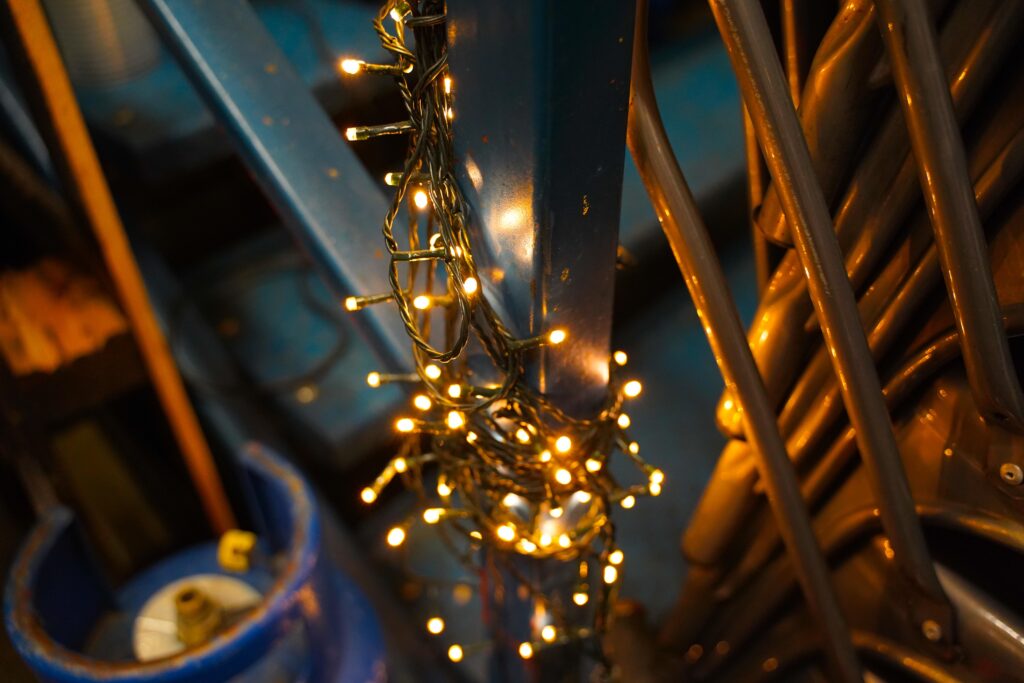
Elsewhere in the off-trade, newer releases include West Coast IPA Big Sur, Imperial Stout Zia and Business Decision, an 8.5% collaboration with Basqueland of Northern Spain.
These beers, brewed in South London, form one major part of London Beer Factory’s output. Because since 2018 the team have also been able to call Druid Street in Bermondsey home, too.
Opening early in that year, The Barrel Project acts as a joint blendery, conditioning area, and taproom for the brewery. Located on the Bermondsey Beer Mile, it serves a comprehensive selection of their beers across 24 taps and allows the team to express themselves through beer in a different way.
“Back in 2016 we missed our Christmas staff party, so we took a trip to Belgium the following January to visit fantastic names such as Cantillon, Brouwerij 3 Fonteinen and Brouwerij Boon,” recalls Sim. “If you’re planning to do something even remotely similar in that space, then why not learn from the best?”
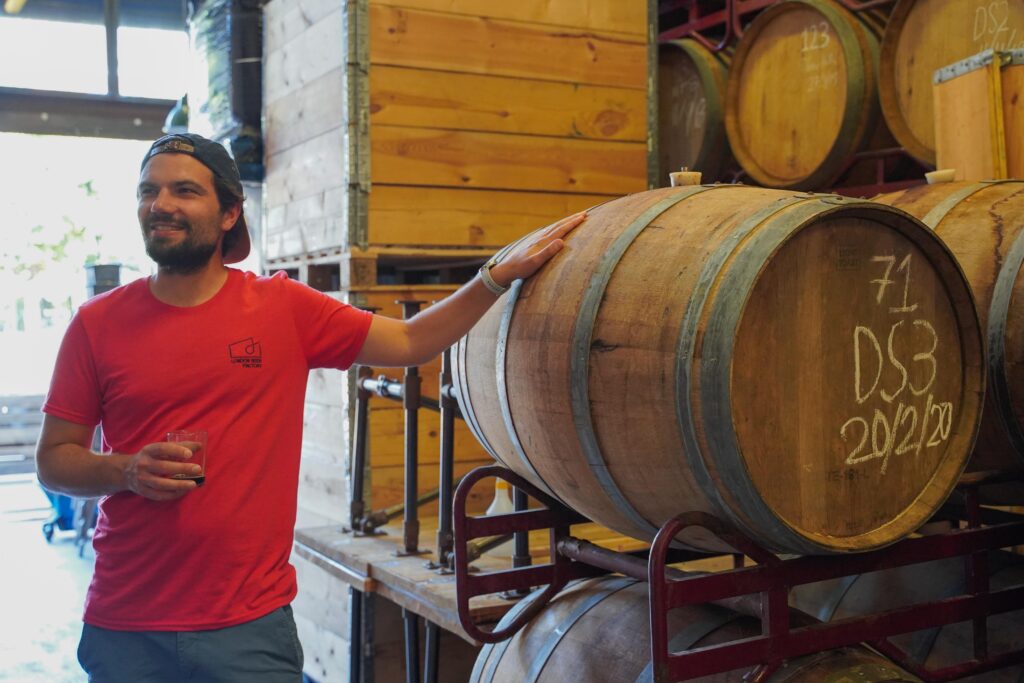
The trip would prove to be an eye-open- ing experience for the team. First and foremost as fans of great beer, and also to take in the ways these beers are produced, stored and conditioned up-close.
“Each of these breweries had such a strong identity, and it was something we truly wanted to recreate in our own way back in London,” says Sim.
Equipped with a passion for wild beers, and armed with Ed’s background in wine, they reached out to Alex Sakon, a renowned figure in the world of barrels. With the London unit on Druid Street secured, the duo would visit Bordeaux to source the all-important vessels that would help make a Bermondsey arch something truly special.
Three lorries accommodating close to 200 oak barrels would eventually make their way to London, but it was that early meeting earlier in the process that lives long in the memory.
“We met Alex to cast our eyes over the barrels we were procuring,” says Sim. “We visited Bordeaux with the aim of bringing some back with us. We bought 12 there and then, and off we went.”
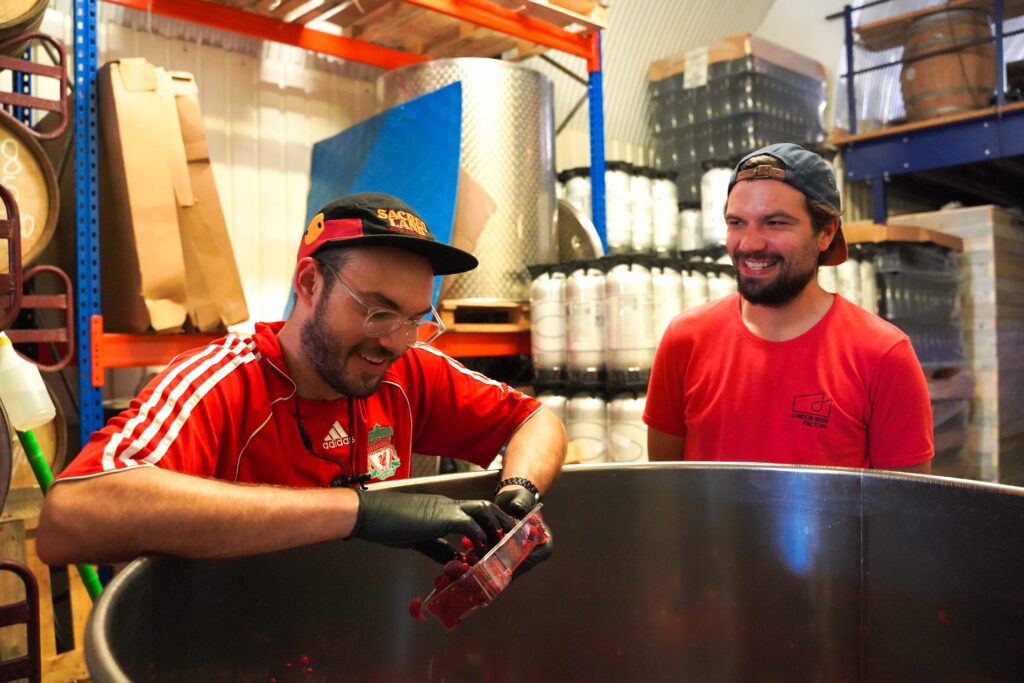
In 2020, the Bermondsey venue is far closer to that original vision than two years ago. A vast portfolio of oak adorns the walls, alongside a fully-fledged bar to satiate drinkers. Several on-site FVs are also in frequent use to help condition the team’s latest creations.
Recent beers to emerge from The Barrel Project include Abaza, a Barrel Aged Brett IPA w/Idaho 7. The third release in their Brett IPA series, the 7.6% beer features a malt base of pale, wheat and oats the same, Idaho 7 hops and a ‘Brussels Brett Blend’ from The Yeast Bay.
The base beer was heavily dry-hopped, aged in oak for five months and then dry-hopped again in stainless steel prior to packaging. This beer has a firm bitterness upfront that mellows into a blend of ripe stone fruit, rock melon and white grape, before finishing dry and oaky.
Elsewhere, Tokoloshe is an Oude Bruin with Sweet & Sour Cherries. A collaboration with friends of the brewery, Little Monster, the Oude Bruin base was brewed in October of 2018 spending the subsequent 12 months maturing in oak with several strains of Brett, Lacto and Pedio before add-ing 300g/l of cherries at a ratio of 80 to 20 – sour and sweet. The beer was left on fruit in oak for a further six months before naturally carbon- ating with wild yeast in package.
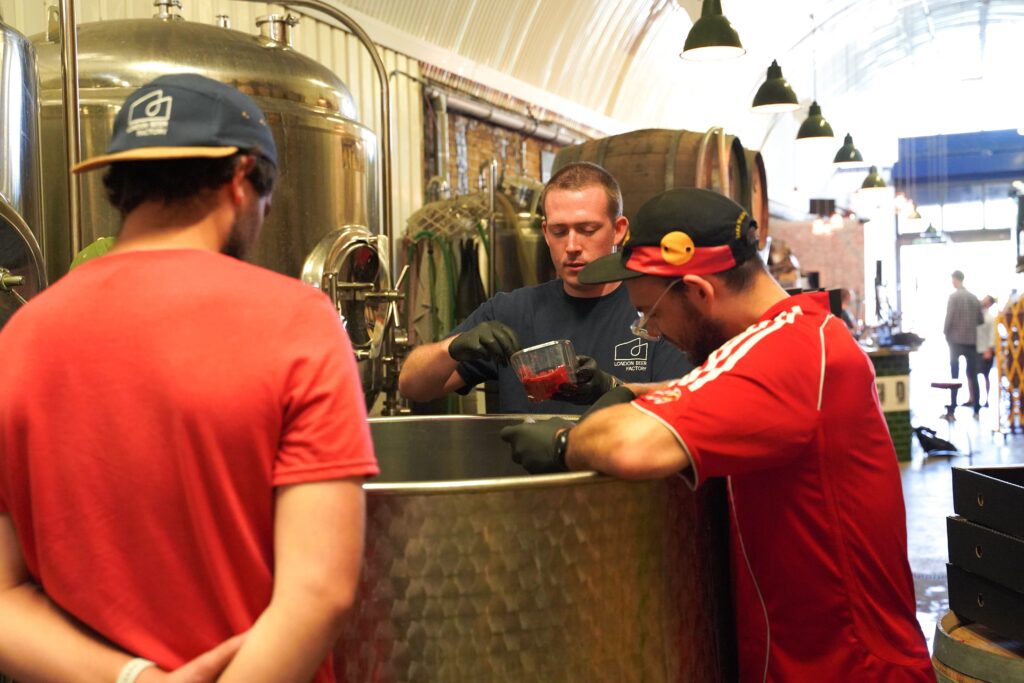
There is a shared satisfaction between Ed and Sim regarding their ability to furnish each of the bar’s 24 taps with diverse beers produced in-house. But more so, the sense of reward stems from the team producing, packaging, marketing and selling those beers.
“We’re really, really proud with the team we have here. And I’m truly excited with what we can do collectively going forward,” says Sim.
Co-founders Ed and Sim act as sales director and managing director, respectively. Head of operations Brett Moore oversees production at both sites. Joining from Beavertown in 2018, he helped get The Barrel Project off the ground from a standing start.
Head brewer Will Earl leads the brewing operation at the South London production brewery while Brayden Lew joined the company from Wildflower in Marrickville, New South Wales to head up The Barrel Project. Following a stint at
Ballistic Brewery in Queensland, James Leaver returned to the UK to handle design and branding for London Beer Factory.
“Everyone has their own expertise and we’re very lucky to have them on board. They each come from a different background and the brewery is all the better for it,” adds Sim.
And like all around them, that team has had to pull together in recent months as the Covid-19 pandemic took hold.
“It has been incredibly gratifying to hear from customers that couldn’t get the beers they wanted due to the closure of pubs, or an inability to visit the shops,” says Ed. “It started slow and before we knew it, we were fulfilling more than 100 orders a day. I suddenly had to become an expert in e-commerce. It was a real eye opener.”
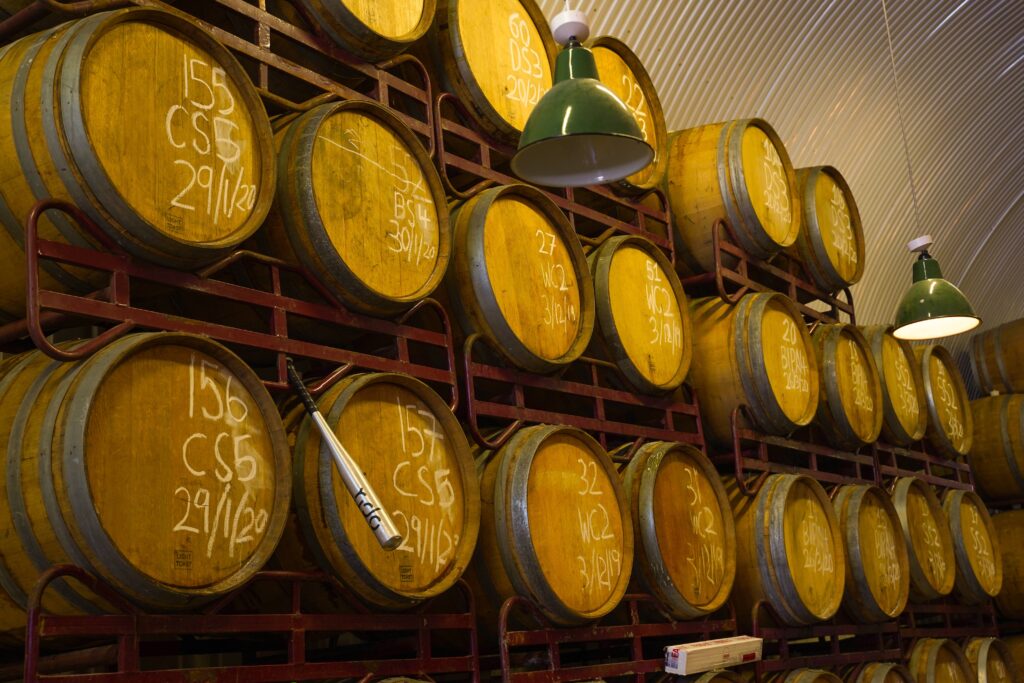
Decadent beers like the Zia Imperial Stout and fiercely-hopped Business De- cision have been a hit on the webshop, alongside core stapes and its barrel-aged beers, both in 375ml and 750ml bottles.
Ed is hopeful the brewery will maintain its strong online showing, enabling it to complement recovering draught sales following the reopening of hospitality in early July.
“We’ve obviously lost sales of keg beer these last months but we’re grateful to come through it,” he says.
Sim adds: “You find yourself stopping every so often. The whole situation is intense and surreal, which I think is the same for everyone.
“But beer is resilient and I’m confident we’ll collectively come through these uncertain months ahead. You just need to be able to adapt, show flexibility, and not be afraid to work hard.”





